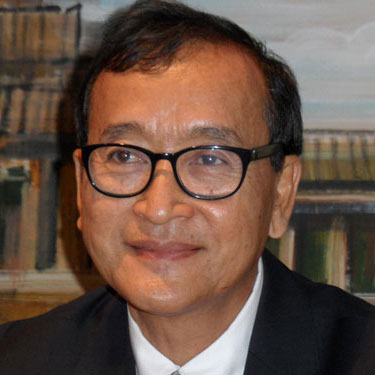Cambodia risks repeating the electoral farce of 2018 when the ruling Cambodian People’s Party (CPP) won all the seats in a bogus exercise which only Prime Minister Hun Sen called an election.
The country will hold communal elections in June 2022, and national elections in July 2023. Cambodia remains without a credible opposition party since the arbitrary dissolution of the peaceful opposition Cambodia National Rescue Party (CNRP) in November 2017. Despite serious electoral irregularities in favour of the ruling party, the CNRP collected 45% of the popular vote at both of the two last elections it took part in: the 2013 national election and the 2017 local election.
Cambodia lives in a climate of fear based on intimidation and repression. Anyone who is openly critical of the regime is likely to be immediately arrested, and leading opponents of the regime are forced into exile. The leading figures in the CNRP were all given bans of five years from political activity. These bans last until November 2022 and could be prolonged for another five-year period. The party’s leader Kem Sokha remains stuck in an indefinitely postponed trial on a bogus charge of treason for which no evidence exists. He is unable to freely express himself in public.
The charge against Kem Sokha is the pretext which was used to dissolve the CNRP. Dropping the charge against Kem Sokha would enable the CNRP to be automatically reinstated. That is why his trial is being endlessly postponed under the pretext of Covid-19. But the pandemic has done nothing to stop the trials of other critics of the regime from all walks of Cambodian life.
The overall result of locking up or banishing critical voices is a lack of any real political opposition and the loss to Cambodia of many talented women and men with wide-ranging skills and experience. A poor country such as Cambodia cannot afford their loss. Hun Sen is targeting me personally with a planned new law to prevent holders of dual nationality from holding high office such as the premiership, as I am also a French citizen. The military junta in Myanmar used exactly the same trick against Aung San Suu Kyi in Myanmar. Her sons are British, and this was used in the country’s constitution of 2008 to prevent her from becoming president.
Selective Rehabilitation
Hun Sen wants to pick and choose his political opponents. He doesn’t even hide the fact that he spies on the CNRP. Recently he gate-crashed a CNRP internal conference call and boasted that he had been listening in to many such calls. Cambodia’s prime minister, apparently, can find no better way to use his time.
His aim is to persuade some CNRP members to apply for selective political rehabilitation. If they renounce their former party and create new phantom opposition parties – none of which have any significant popular support – they will provide Hun Sen with a fig-leaf for the claim that Cambodia is a pluralist democracy.
But those who want to establish a new party to compete in the elections without being under the control of the CPP are refused authorisation. Even if these people have never been banned from politics, they are accused of working for the CNRP.
The coming elections can’t be considered as legitimate unless the recommendations of the United Nations Special Rapporteur on human rights in Cambodia are put into effect. The Rapporteur, Professor Vitit Muntarbhorn from Thailand, this month sent a clear message to the Cambodian government: “Drop court cases and end the detention of those who disagree with the authorities,” he said. “Restore political rights to members of the political opposition, and propel reconciliation. Share the power and end the monopoly.”
But simply reinstating the CNRP will not be enough to achieve these aims. The National Electoral Committee (NEC) remains under the tight control of the ruling party. The NEC will have to be reformed if Cambodians are to be given their democratic voice. It is now 30 years since the signing of the Paris Peace Agreements on Cambodia which stipulate a “liberal, pluralist, democratic system”. Cambodia remains in breach of this international treaty as well as its own constitution by denying its people a democratic choice.
Hun Sen has proved many times that piecemeal concessions are not the start of a democratic process, but simply a way to play for time. His aim is to hand over power to his son Hun Manet to create a family dynasty, possibly using a short-term interim successor as prime minister to obscure the process if necessary.
To avoid that family dynasty being a reality, the international community must accept nothing less than a comprehensive package of reforms to allow political parties to freely compete in elections under a reformed and neutral NEC.
The views and opinions expressed in this article are those of the author.

Sam Rainsy, Cambodia’s finance minister from 1993 to 1994, is the co-founder and acting leader of the opposition Cambodia National Rescue Party (CNRP).

